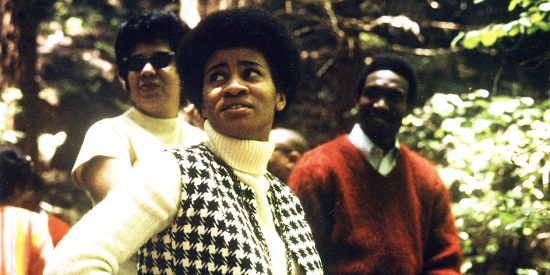
Photo: UCSF Black Caucus Retreat, May 1969, © UC San Francisco, Library, Special Collections
By the late 1960s, the Civil Rights Movement had swept the United States and — as was evidenced by Martin Luther King Jr.’s 1967 address at UC Berkeley’s Sproul Plaza — UC. Yet despite welcoming one of the movement’s great leaders, UC was not immune from some of the racially discriminatory behaviors and policies that pervaded in the U.S. at that time. Like much of the country, UC needed to recognize problematic areas and be accountable for ensuring that all members of its community were treated with fairness and equity moving forward. The Black Caucus was the first group to initiate this change, and its far-reaching efforts were propelled by a dedicated team of UCSF staff.
The Black Caucus was formed on May 4, 1968, exactly one month following King’s assassination. In addition to becoming UC’s first cultural affinity group, they were the first group to openly challenge the administration over discriminatory and racist policies. Their first action was to issue a letter of demands to the chancellor. When the administration did not move quickly enough to counter endemic discrimination, they risked their livelihoods by organizing a strike to bring attention to their cause.
It worked. As a result, janitors were reclassified as custodians — a change that brought about a 25% retroactive pay increase. More equitable personnel policies were implemented across the board. And, campus leadership made a commitment to minority student recruitment and support services, setting a 25% admission goal for minority students. This was one of the central goals of the Black Caucus: They believed that campus racism would only be mitigated when people from underrepresented and minority groups were represented in all areas of the university. Their efforts and success improved not only the quality of life for UCSF African-Americans, but for all members of the UC community who had faced discriminatory policies and practices due to their underrepresented or minority status.
Explore the inspiring history of the Black Caucus and its social justice advocacy in a two-part video series, created for its 50th anniversary: Part one. Part two.
